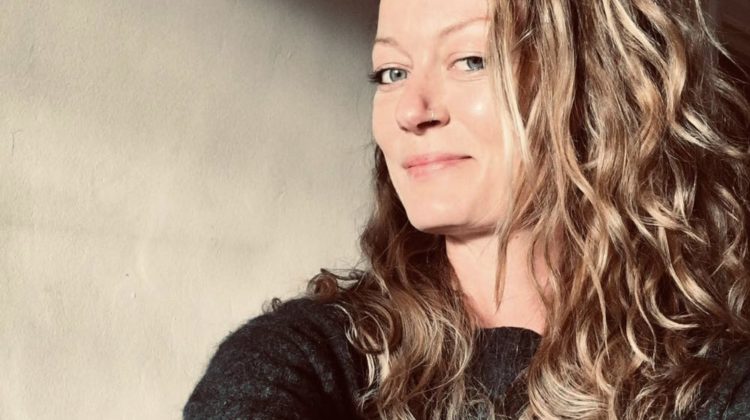
It’s World Bee Day! Rosie Cable, who launched her pollinator friendly business Beekind Plants a week before the first lockdown, explains how planting for pollinators just make perfect sense – and how her business has been her saviour and sanctuary
I had the idea of Bee Kind on the way home from the Job Centre, funnily enough! I’d been a self-employed gardener for 12 years but when a (what turned out to be a temporary) separation from my partner forced me to claim universal credit for a while, I found myself at fortnightly ‘work search’ meetings.
I was struggling to meet my minimum income floor due to childcare issues and a bad back and my work coach suggested I think of other ways to ‘grow my business’.
Working as a gardener, you notice that bees and insects are attracted to some flowers more than others.
I’d heard of the RHS Plants for Pollinators list on Gardeners World (Monty Don is pretty much my idol). Driving home from that meeting was my lightbulb moment, I would ‘grow my business’. Literally!
I would grow plants for pollinators and be peat, pesticide, and plastic free. I started saving seed and taking cuttings in the poly tunnel my dad built.
That was nearly two years ago and although there have been a few bumps in the road, I’ve not looked back since!

Planting for pollinators is vital if we are going to sustain ourselves on this planet, and it just makes complete sense to me. As gardeners, by our very nature, supporting and encouraging wildlife should be forefront of our minds – why would you not consider pollinating insects when choosing plants for your garden? They more than support us after all, without pollinators we would have no food!
Not only do pollinators fertilise our food crops, but pollinator friendly planting helps maintain our ecosystems and promotes biodiversity.
If you are going to buy plants for your garden, they might as well be the most nourishing for our pollinators and the environment in general.
Similarly, with pots. We all have, or have had, that corner of the garden shed filled with discarded plastic pots that eventually end up in landfill.
Using recyclable or biodegradable pots can have a huge impact on reducing micro plastics in our oceans and food chain.
We are working towards being completely plastic free, but in the meantime, we are just about to start using Hadopots, a recycled, reusable, recyclable and oxo-biodegradable polythene pot, which breaks down without leaving micro plastics.
We do also use taupe coloured plastic pots, which can be recycled in your roadside bin. There must be a conscious choice by manufacturers, retailers and consumers to use more environmentally friendly products and where possible offer plastic, peat and pesticide free alternatives.
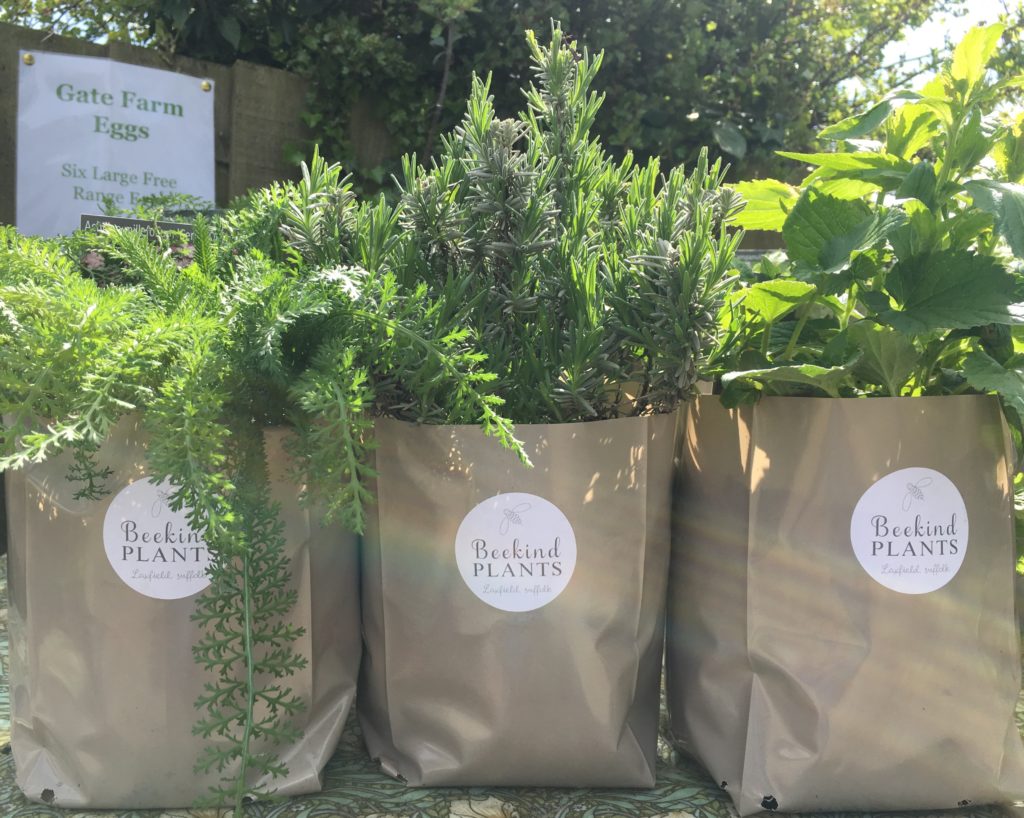
Beekind Plants launched about a week before the first lockdown. It was a crazy time for everyone, and for me personally, and a crazy time to launch a business!
At that point, it was all online and we offered our Beekind Boxes, veg plants, click and collect and local delivery. The response was fantastic and online orders came flooding in!
If I’m brutally honest, the last year or so has been the hardest of my life. In January 2020, my mum was diagnosed with terminal cancer, aged 67.
She was offered palliative chemo to try and give us all some time, but at her first session, on the day Boris Johnson announced the first lockdown, she had an allergic reaction to the chemo drugs and went into anaphylactic shock.
We knew then that we would not have long. Trying to launch a business knowing she was so ill, and that I could not go and see her, was extremely tough.
During the first half of lockdown, I found my plants such a comfort, it was so therapeutic to be in the polytunnel, pricking out and potting on.
I was overwhelmed with online orders, which helped keep my mind off things and in many respects the lockdown really boosted the launch of Beekind Plants.
Then, at the beginning of May, mid lockdown, mum took a turn for the worse and things progressed quickly.
Not wanting to go to hospital or a hospice, for fear that we would not be able to be with her, she decided that she would be at home, and myself, my older brother and sister moved back in and locked down with her to care for her, obviously leaving my kids and partner, and the business, at home.
We were there for a month before she passed away on May 30. During that month, there was no way I could do any online orders, and I had no idea how long I’d be away, so I closed the website and put all our plants on a stall out the front of our house and left it in the very capable hands of my partner and two boys, then five and eight.
I instructed them about what plants to put out etc over video calls and they were amazing! The kids loved checking the tin for money, and my youngest even got a special mention when he went back to school for coin recognition – home schooling at its finest!
People kept coming, the plants kept selling and that’s how it has continued. With garden centres closed during that first lockdown, the support from our local community was amazing.
Everyone wanted plants, and people felt happy and safe to pop by the stall. My mum’s illness and the pandemic has meant that Beekind has evolved from my original idea of being solely online, to being a physical place, and our local community has responded to it fantastically!
For me, personally, it’s been such a conflicting year, of overwhelming grief and loss, as well as pride and excitement for my fledgling business.
Beekind Plants has really been my saviour and sanctuary, it’s given me a focus, and hope for brighter days to come!
My garden is a wild work in progress! With all the sowing, growing, and potting on it sadly doesn’t get much of my time.
But, what was just a bare strip of grass two and a half years ago, now has several pollinator friendly beds, which are beginning to look nicely established.
I also have an area of wild meadow grass which I cut only once or twice a year, and last year had pyramidal and bee orchids pop up, which was exciting!
There isn’t really one type of plant that’s best for bees, because there isn’t just one type of bee! Different pollinators like different things, for example long tongued bees like a tubular shaped flower, such as foxgloves or honeysuckle, while night flying moths are attracted to night scented flowers like stocks, or native honeysuckle ‘periclymenum’.
As a general rule, though, open single headed flowers are best, so pollinators have easy access to the pollen and nectar they need.
Certain colours are more visible to bees too, such as purples, blues, whites and yellows, and planting en masse, in blocks of colour, will make it easier for pollinators to hone in on their food.
The key is to have as many different types of plant species as possible to support and encourage diversity.
Probably the single most important thing you can do for pollinators is to elongate the season as much as you can, planting as many flowering plants as possible, for as long as possible.
Late spring and summer are full of nutritious plants to forage, which is great, but it’s also really important to provide pollen and nectar in late autumn, through winter and into early spring.
Some pollinators emerge much earlier than you might think, and plants such as Winter Clematis, Winter Honeysuckle, Mahonia, Sweet Box and early spring flowering bulbs provide a much-needed source of food. And again, the bigger blocks you plant, the more your garden will be buzzing!
The rest of the garden, behind the house where no one can see, is absolutely covered in potted plants waiting to go out on the stall!
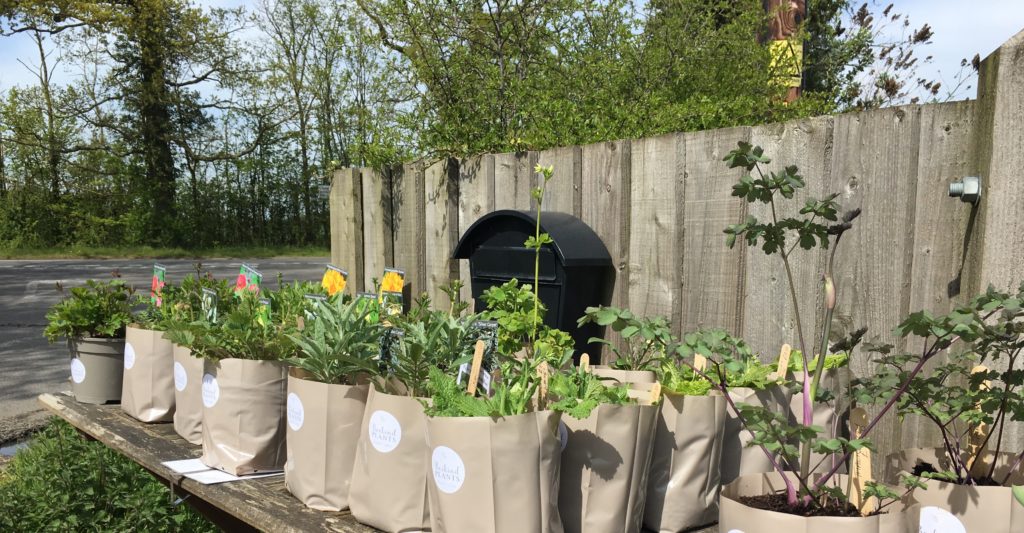
Come and visit the stall – we’re just outside Laxfield on the B1117 towards Halesworth. One of my January jobs was to get a full stock list and order from up on the website, but another lockdown and home schooling put paid to that.
I’m currently trying to get that done ASAP, so people can send me their orders online, as well as coming to peruse the stall.
We deliver for free to surrounding villages or for £2.50 within a 15 mile radius, or people can collect directly from us. People can DM me on social media or via the website with any queries.
I do the Laxfield Community Market on the first Saturday of the month. There are some lovely stalls, with a great atmosphere, and it’s been such a joy to be out interacting with people again! I’ll also be at the beautiful Wingfield Barns Garden Celebration day on June 6.

I will very soon be extending the stall to the front part of my garden, with loads more pollinator friendly plants, complete with a new Beekind Hut – essentially a boutique Beekind Garden Centre!
I’m also hoping to stock peat free compost and refillable Bag for Life compost bags, as well as locally sourced products, cut flowers and locally crafted garden sculptures.
We have a new, much larger poly tunnel going up on the meadow behind our house so we can increase our range of RHS Plants for Pollinators – and will be digging beds for growing open ground perennials, ready for planting in the autumn.
Over the winter, I will be working on the online side of things, hoping to be selling plug plants again for next spring in biodegradable packaging.
The last year or so has been quite a journey personally and professionally and Beekind plants has had to adapt and change accordingly.
Covid has shown that people need their gardens more than ever, and that people also like a physical place, to wander and browse, to see the quality of the plants and produce they’re buying, so that’s what I want to provide.
There seems to be a real shift back to supporting local business, a demand for local products and a real sense of community, and I think Covid has played a huge part in that.
It’s all a work in progress, but I’m very excited about the direction we’re going in, and really proud to be doing my bit to help our pollinators, and I hope I’m making my mum proud too.
Visit www.beekindplants.com




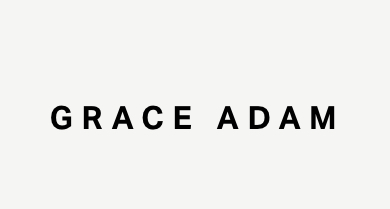



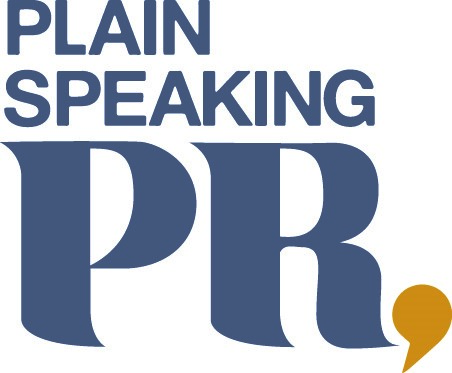
Leave a Reply